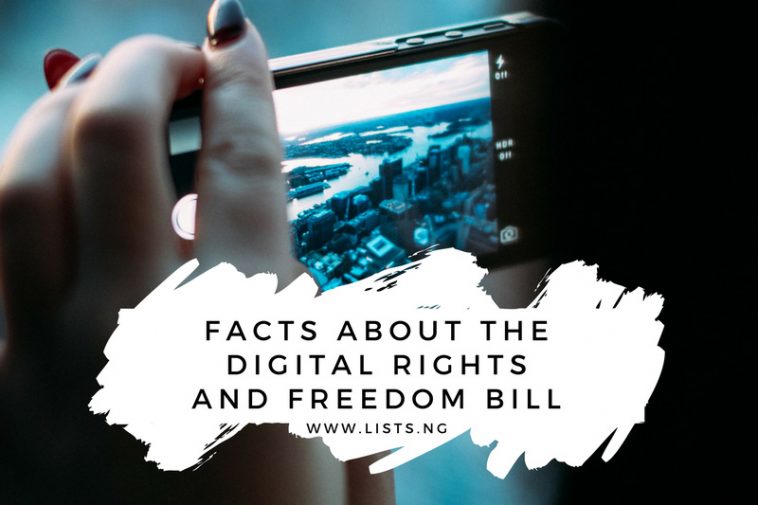On Tuesday, the Nigerian Senate followed the path of the House of Representative by passing the Digital and Freedom Bill. The bill which has received praise from communications and information technology experts, human rights activists and civil society groups will now go to President Muhammadu Buhari for assent, after which it become the nation’s first milestone law on the rights of citizens online.
In its 35 pages, the bill as passed contains seven clauses covering aspects that define freedoms, rights and certain punishments. Here are ten key points to always remember about the bill:
-
Full Name
It will be referred to as the Digital Rights and Freedom Bill (and subsequently “law” when the president grants assent). But its full name is “The Act to provide for the protection of the human rights online, to protect internet users in Nigeria from infringement of their fundamental freedoms and to guarantee application of human rights for users of digital platforms and/or digital media and for related matters”
-
Objectives
The bill has nine objectives stated in Part I. They include the promotion of freedom of expression and association online, guaranteeing privacy rights and establish legal framework for surveillance and giving more priority to data privacy, safeguarding sensitive data of citizens held by government and private agencies. It also aims to guarantee application of offline human rights online, provide sufficient safeguards against abuse and opportunities for redress when infringements occur and equip the judiciary with relevant framework to protect human rights online.
-
Data Confidentiality
The Rule of Confidentiality applies to every provision of the act, except where the context states otherwise. Confidentiality of personal data and information of citizens is guaranteed and inviolable. Court warrants have to be obtained were private data must be accessed.
-
Identity Protection
“Every person shall have the right to communicate anonymously online without fear of interference with correspondence” and “Every person shall have the right to express themselves anonymously online and shall not be compelled to adopt real name registration systems” (Part II, article 4, nos 3 and 4)
-
Periodic Accountability
“Every private entity in Nigeria holding citizen data – personal details of private individuals – shall publish in two National Newspapers biannual periodic reports detailing the nature and frequency of government requests”.
-
Grounds for Interference
Lawful interference can only be carried out when “an appropriate Court order has been sought and obtained” but cannot be applied in a manner that discriminates on the basis of ethnicity, sex, religion, political or other opinion, national, property, or other status”.
-
Monitoring and Surveillance
“Mass or indiscriminate surveillance of the people and the monitoring of their communication shall not be carried out”. Government may carry out surveillance where necessary but has the burden to prove that it is the only available legitimate means (or means least likely to harm human rights) of achieving a specific appropriate aim. “The State shall provide individuals with sufficient information to enable them to fully comprehend the scope, nature and application of the laws permitting Communications Surveillance”.
-
Tracking Chats and Messaging
How does the idea of the government tracking your Whatsapp chats and keeping tabs with your email exchange with your boss, or observing your DMs on Instagram and Twitter? The Bill takes care of these things: “Government agencies shall obtain a search warrant based on probable cause before they can track, prospectively or retrospectively, the location of a cell phone or other mobile communications devices”. Government can only track your chats, messages etc after they have proved to a court of competent jurisdiction that such information is relevant for a criminal investigation.
-
Whistleblower Protection
“Whistleblowers are also adequately protected by this Act from any form of sanction, attack, arrest or subjected to any civil or criminal proceedings.
-
Sponsor
The bill was introduced to the House of Representatives by Honourable Chukwuemeka Ujam, member representing Nkanu East/Nkanu West federal constituency, Enugu state, of the Peoples Democratic Party. Mr Ujam is a qualified information and communications technology, and electronics expert, with a PhD in Security and Biometrics from the University of Kent and over 20 years private sector experience in information and communications technology. He is the vice chairman of the House committee on telecommunications and is in his first term as a representative.






